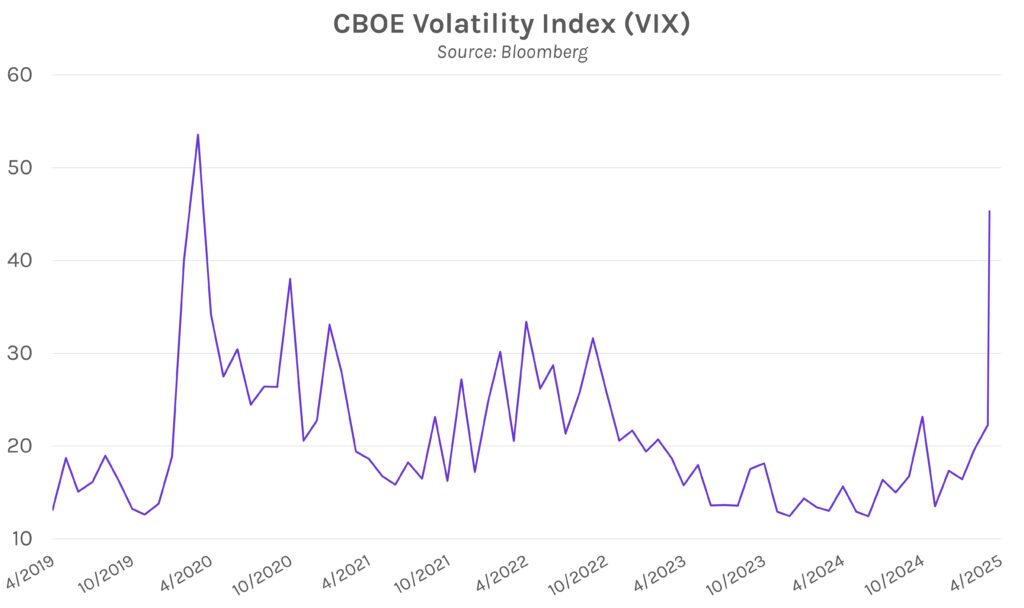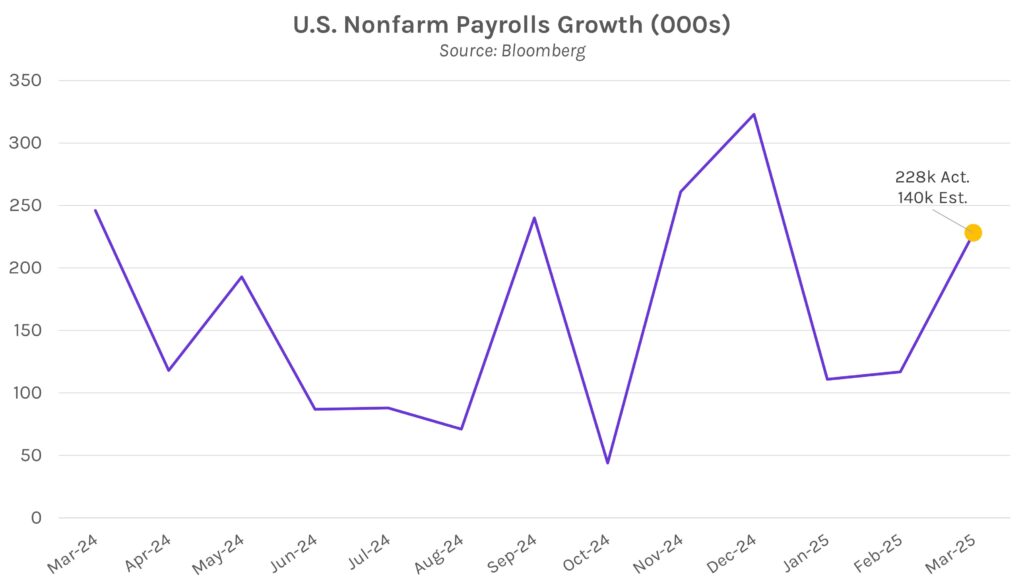Yields whipsaw, equities plummet again in tariff aftermath. An overnight announcement that China would soon implement retaliatory tariffs against the US spurred concerns about trade wars and a recession. Treasury yields plummeted overnight, and the 2-year yield fell 21 bps from opening levels to a new 6-month low of 3.47%. However, a combination of strong labor data (228k jobs added in March vs. 117k in February), positive tariff news out of Vietnam, and Chair Powell’s relatively hawkish comments drove a reversal in rates. The 2-year yield closed the session down only 3 bps at 3.65% while the long end fell 6 bps. The MOVE index, a measure of interest rate volatility, has spiked over 38% from last week’s lows, while the VIX “fear gauge” surged over 50% today to nearly a 5-year high. Meanwhile, equities continued to plummet, with the S&P 500 and NASDAQ down nearly 6% today.

Powell is increasingly weary of potential long-term tariff impacts. At today’s press conference, Chair Powell appeared to be more concerned about trade wars after he argued at March’s FOMC meeting that tariff-driven inflationary pressures would likely be “transitory.” Powell said today that “it is now becoming clear that the tariff increases will be significantly larger than expected… the same is likely to be true of the economic effects, which will include higher inflation and slower growth.” However, he maintained that the Fed must remain patient with policy changes due to “elevated” uncertainty, and he expects policy impacts to be more evident in a year. For now, labor market strength and generally sustained 2024 economic growth mean the Fed is “well positioned to wait for greater clarity before considering any adjustments to our policy stance.”

U.S. trading partners begin tariff negotiations. After China adopted 34% tariffs on all US imports (effective April 10th) in addition to export restrictions on seven rare earths and other measures, some nations showed willingness to negotiate with the US. President Trump said today that Vietnam is open to eliminating all tariffs following a public request from the country for a 3-month delay on U.S. tariff implementation. Cambodia and Indonesia later said they would temper tariffs on American goods, and the EU is prepared to discuss negotiations with the US as soon as today. Those efforts could include eased levies and regulations against the US, though the bloc has taken a firmer stance on tax and technology sector rules. Markets will continue to evaluate countermeasures and negotiations to try to gauge the prevalence of long-term trade wars.